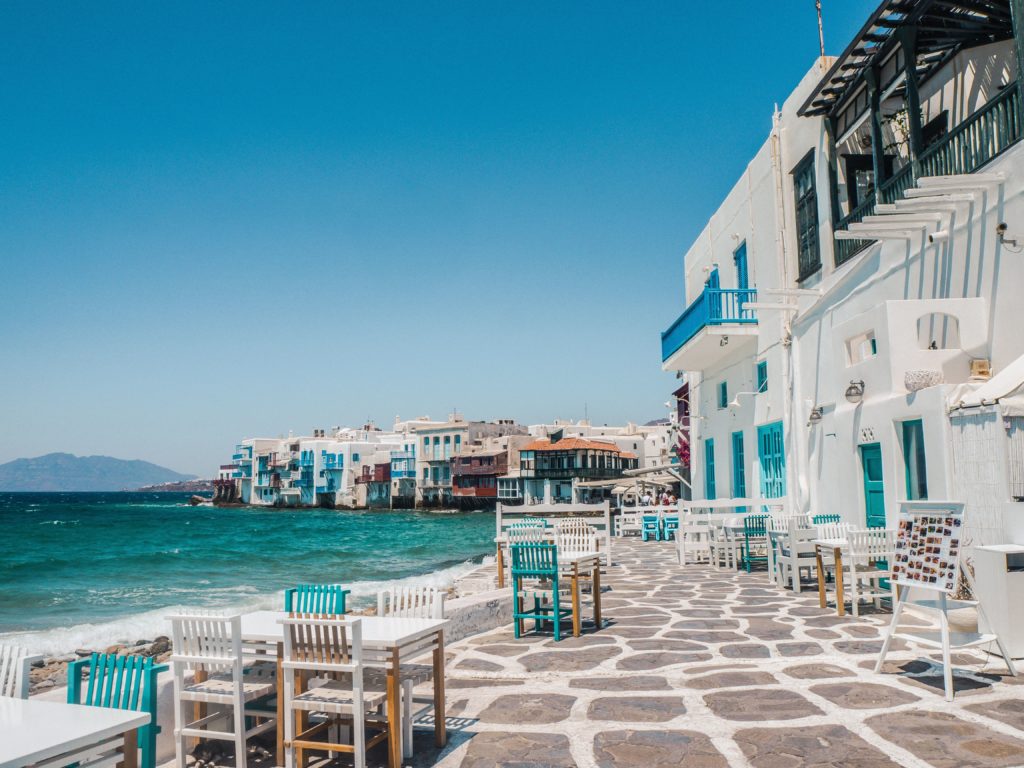Consider moving to Greece so you may spend your days relaxing on the beautiful sands. You’re not alone, after all. Around 1.2 million migrants are currently residing in Greece, assimilating into the local culture, taking in the breathtaking coastline, and savoring some regional specialties.
But before you pack your bags and travel to the airport, you might want to become acquainted with this illustrious Mediterranean nation’s ins and outs.

Prepare for name day celebrations
Some places associate names with a particular day, and celebrating those names is a common custom in Greece. Additionally, Greeks enjoy a big-name day.
Family and friends will be welcomed to an open house, like birthdays when they can stop by and express their wishes, present a little gift, and enjoy the customary “kerasma” (food, sweets, coffee, and drinks).
In Greece, name days are typically more significant than birthdays, especially as people age.
Unusual birthday celebration
Birthdays are celebrated in the same manner everywhere, including in Greece and other Mediterranean nations, although you might wish to set aside some cash for yours. If the birthday person chooses to host an outing for guests, they should expect to foot the tab rather than receive meals or a party.
Consider healthcare insurance
You might want to think about purchasing private health insurance if you’re going to Greece. Everyone can receive free emergency care in Greece, regardless of nationality. An expat will, however, be responsible for covering their medical costs for many primary care visits unless they are employed, have a social security number, and pay for public health insurance. Therefore, it is preferable to protect your back by purchasing private insurance.
Additionally, although Greek healthcare is generally of a high standard, many expatriates choose a private health insurance plan to gain access to higher-caliber services and shorter wait times.
Think before you flush
Generally, stay away from flushing toilet paper in Greece; otherwise, things could become nasty.
Greek sewage pipelines have a diameter of barely two inches, rendering them susceptible to obstructions. You might need some time to adjust, but you’ll do fine.
Drink coffee like a local
If you enjoy coffee, you’re in luck because Greece is among the top 20 coffee-consuming nations in the world. Greeks, who rank 17th, consume about 5.39 kilograms per person annually.
There are many ways to enjoy coffee in Greece, and most of them are served without milk. Sketos, a robust Greek coffee served without sugar, is at the bitter extreme of the coffee spectrum. However, if you have a sweet craving, you might prefer a coffee called a “variglikos,” which has two teaspoons of coffee and 2-3 tablespoons of sugar.
Economy and the Grexit crisis
The financial debt situation in Greece right now is the greatest that Europe has seen in the twenty-first century. Only Greek citizens will be primarily impacted by this, but before you board the plane, you should consider how it may affect your transfer.
However, it might not drastically alter your way of life if you’re leaving the UK. The daily ATM withdrawal cap, for instance, is €60, although it only applies to bank cards issued by Greek banks. You should be able to withdraw up to your typical maximum if you have a bank card issued by a bank in another country (there are, however, reports of some ATMs running out of cash).
Always carry cash
It may surprise you to learn that most transactions are conducted in cash in Greece if you are going there from the UK.
Many small businesses, tavernas and cafés, taxis, kiosks, and street vendors only accept Euros in cash, although hotels and restaurants frequently accept credit or debit cards. Furthermore, card payments will become less common the farther you travel from popular tourist destinations.



